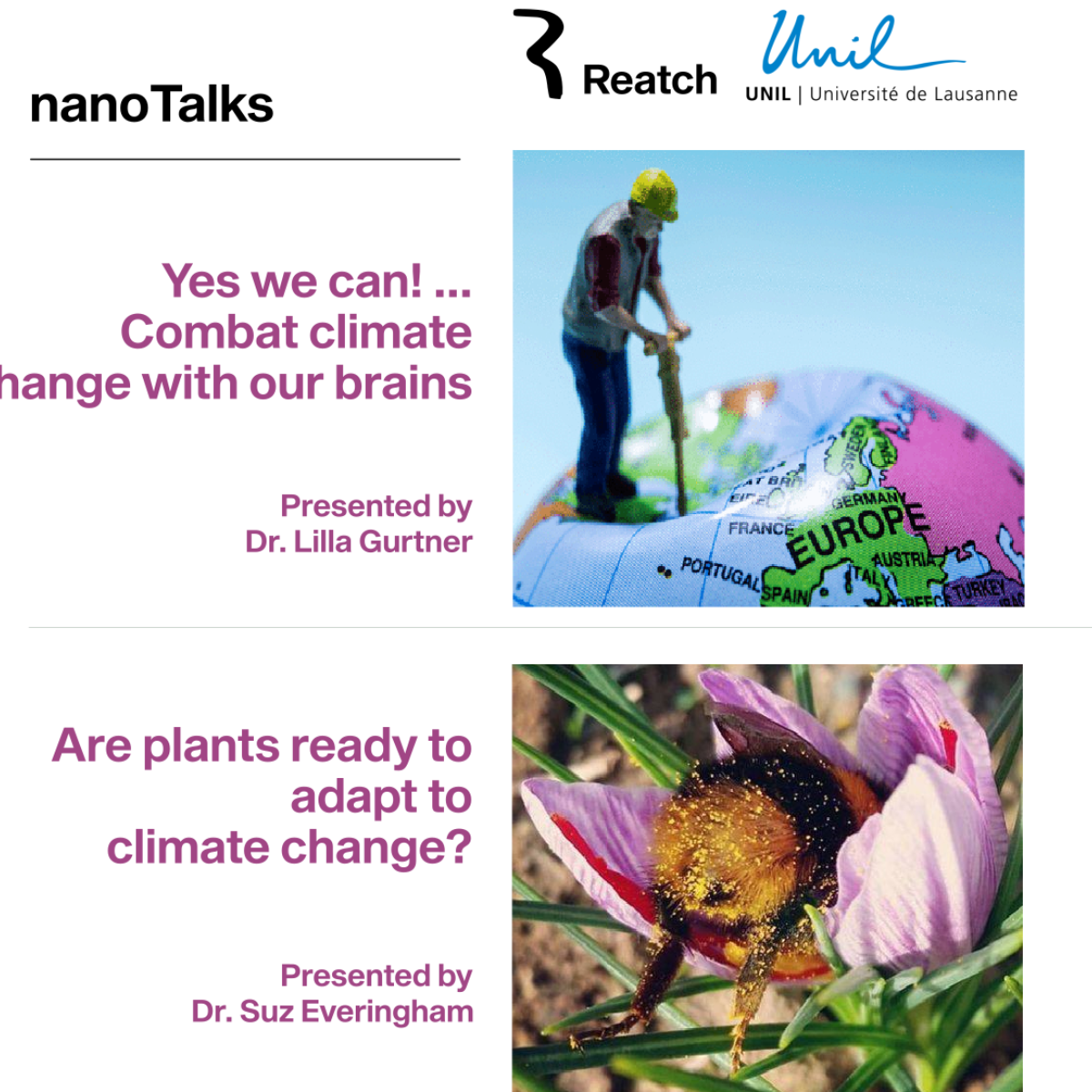
September nanoTalks: Can we adapt to climate change ?
In the September nanoTalks we will discuss the subject of climate change from two different perspectives. The first talk will put the human being as an actor in the center of discussion and will analyze the way humans can use their cognitive software to find solutions for climate change. Whereas the second talk will focus on plants and question how plants are responding to recent, anthropogenic climate change and whether they will be able to adapt to future conditions.
29.09.2022
University of Lausanne, Bâtiment Amphimax, Salle 412
Free

Free
Talk 1: Yes we can! Combat climate change with our brains
Presented by Dr. Lilla Gurtner, University of Bern
The climate crisis is human-made. A solution to this crisis must involve humans too. To find solutions to the climate crisis, it is crucial to know how humans work. Just like we know our hardware (we are good runners and cannot breath under water), we should also be aware of our software, i.e. the thinking abilities we have and where their limits are. From these software characteristics, some voices have deduced that we are unfit to fight climate change (we are too selfish, too short-sighted etc). In this talk the point will be made that our cognitive capabilities are not a hindering factor. Humans actually have many traits that when put in the right context, can support the mitigation of climate change.
Talk 2: Are plants already responding to recent climate change?
Presented by Dr. Suz Everingham, University of Bern
Plants are facing great challenges under future climate change as they are unable to move or migrate to more favourable environments as rapidly as animals. Plants must adapt or respond in the way they are growing and reproducing in their current environments or face the risk of extinction as temperatures get warmer, precipitation becomes more infrequent and extreme climate events increase. To determine whether plants have the ability to adapt under future climate change, we must first ask whether they have already responded to recent climate change. This is a difficult task due to a lack of historic plant data to compare with modern plant data to determine if plants are changing through time. Using seeds stored in frozen seed banks, and flowers stored in historic herbariums Dr. Everingham was able to travel back in time and unlock historic plants to determine that plants are responding to recent, anthropogenic climate change, however, in certain aspects and to certain climatic factors.
